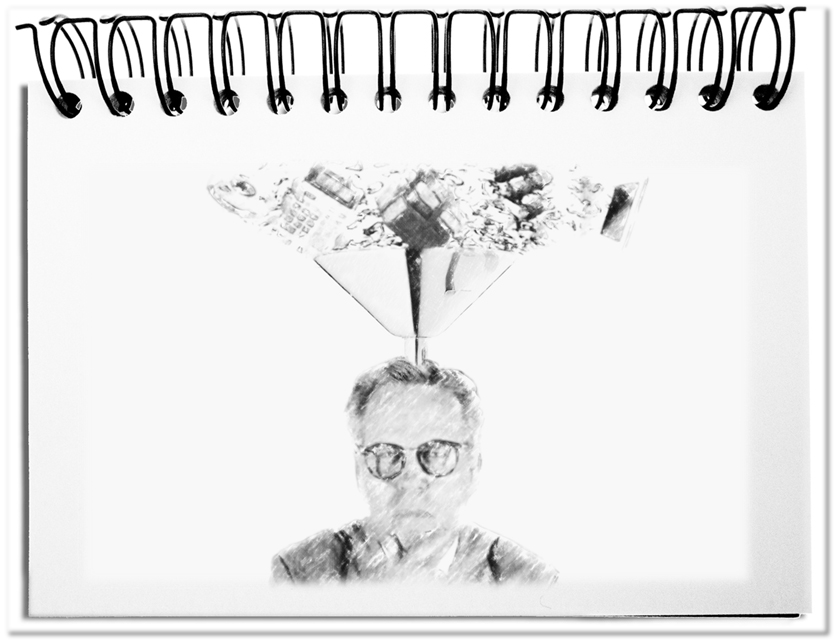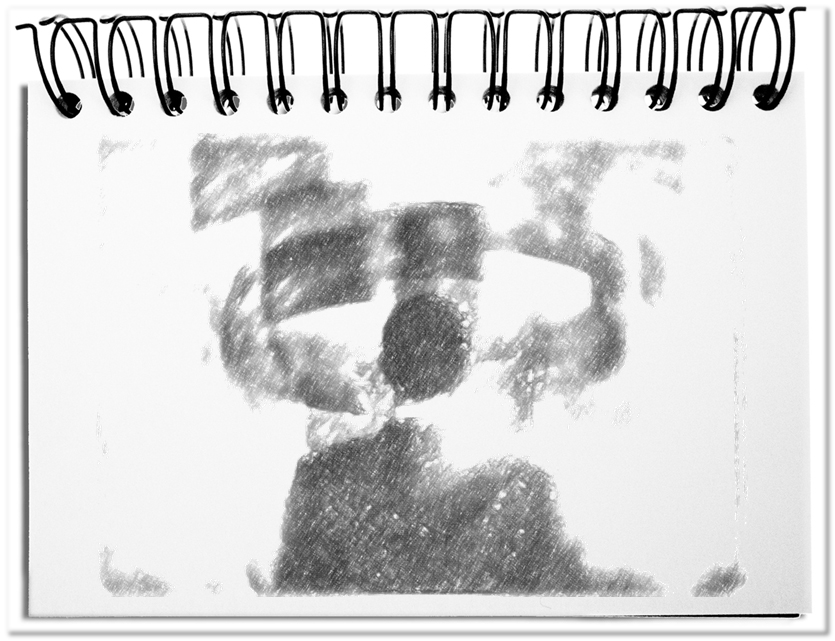Already in the Politeia Plato formulated “what the ignorant has to suffer duly … is to learn from the knowledgeable”. Basically, it was clear from an early age that learning has to do with personal passion. Only the interested and curious have sufficient tenacity to expand their knowledge beyond the comfort zone. This becomes visible subsequently in their behavioral changes, which become possible through observations, experiences and exercises. Although this has been known for two and a half thousand years, the idea still prevails that one could instill people the desired knowledge. This ignores the fact that, at best, data is transferred. However, some people consider this data as unnecessary noise, when they have no motivation to process the received, initially incomprehensible data. Learning cannot be forced, since it is a completely personal matter.
The learning process takes place exclusively in the mind of each individual in his or her own personal way. Neither information nor knowledge or wisdom can be passed on, since they exist only in the minds of every person – even if artefacts such as books and films give the impression that there is more than just the transmission of data. To illustrate this, let’s take a look at the elements of meaning that build on one another.
- Sign
The starting points for our contact with the environment are our sensory perceptions, which we absorb via the eyes, ears, body, nose or tongue. The flood of stimuli we are exposed at is unimaginably great. In order not to go crazy, we unconsciously suppress most signals. The remaining signals arouse our attention and become thoughts on a still unknown path that can only be described to a limited extent – except the facts that we are able to encode as data. - Data
We convert this data into messages, which we pass on with our means of expression, e.g. with the help of spoken or written language or music or visualizations or our behavior. The sender encodes its thoughts as well as possible. A popular metaphor is the data processing of a computer – although our brain does not work that way. The computer works with ones and zeros (001000111). Although we measure electronic activities in the head and can assign brain areas to certain mental processes, we do not know yet exactly how our consciousness evolves as a result. The previous describes the transmission of data that can become information in the next step. - Information
The receivers that are able to decode the received data convert the data stream into a number (e.g. 39). Only by linking it with other data it becomes information. As soon as the addressee realizes that the value comes from a thermometer used to measure a person’s temperature, we recognize that someone has a fever. If this is a new fact or an update of an earlier measurement, the data becomes information that requires our attention. Now, medical knowledge is required. - Knowledge
Depending the state of knowledge, certain people, for example medical doctors, can order the application of calf compresses or the administration of an antipyretic based on available knowledge. Such conclusions could be drawn by a computer. The real difference in treatment arises, when wisdom is added. - Wisdom
Over time more and more knowledge accumulates, which leads to wisdom in combination with already existing knowledge. Accordingly, the wise doctor not only observes the thermometer, but has a holistic look on the patient. Upon further examination he discovers an open wound and other symptoms. Based on his experience and his foresighted wisdom, he detects blood poisoning. Now the calf compresses aren’t sufficient.
The shown levels of meaning are often mixed in everyday life. With the assumption that it is information, many think that all levels are easy to transport and communicate. In fact, however, only data can be disseminated. A group of dashes can have a lot of meaning for the sender. For those who do not know the writing or symbolism of a picture, these signs remain incomprehensible – a good example is the Voynich manuscript. Even data often remains closed off – or who understands this?
· − − · · · · − − − · · − − · − · · · · − · · · · − · − − · − · · · · · − · · · · · · · · · · · − − · ·
Only the data that the sender combines to a message can be transmitted. In the receivers’ head, the data he or she understands becomes information that is linked to other information about the context. In the interaction with existing knowledge, actions are eventually derived. The transition to wisdom is fluent, takes a lot of time and motivation to learn. The knowledge and the linking of different fields of knowledge ultimately lead to extraordinary possibilities.
Bottom line: Information exchange, knowledge transfer, knowledge management, knowledge mediation or Nuremberg funnels with which knowledge is to be disseminated are apparently pragmatic approaches, but often fail due to a lack of willingness to learn. Since only data can be transmitted, it is necessary that the individual makes an effort to convert the data into information, process it into knowledge and at some point has enough experience to speak of wisdom. In communication, the receiver decides on the meaning with its horizon of experience – each person has its own viewpoint and therefore accumulates its own personal insights. For these reasons, learning is a completely personal matter.


